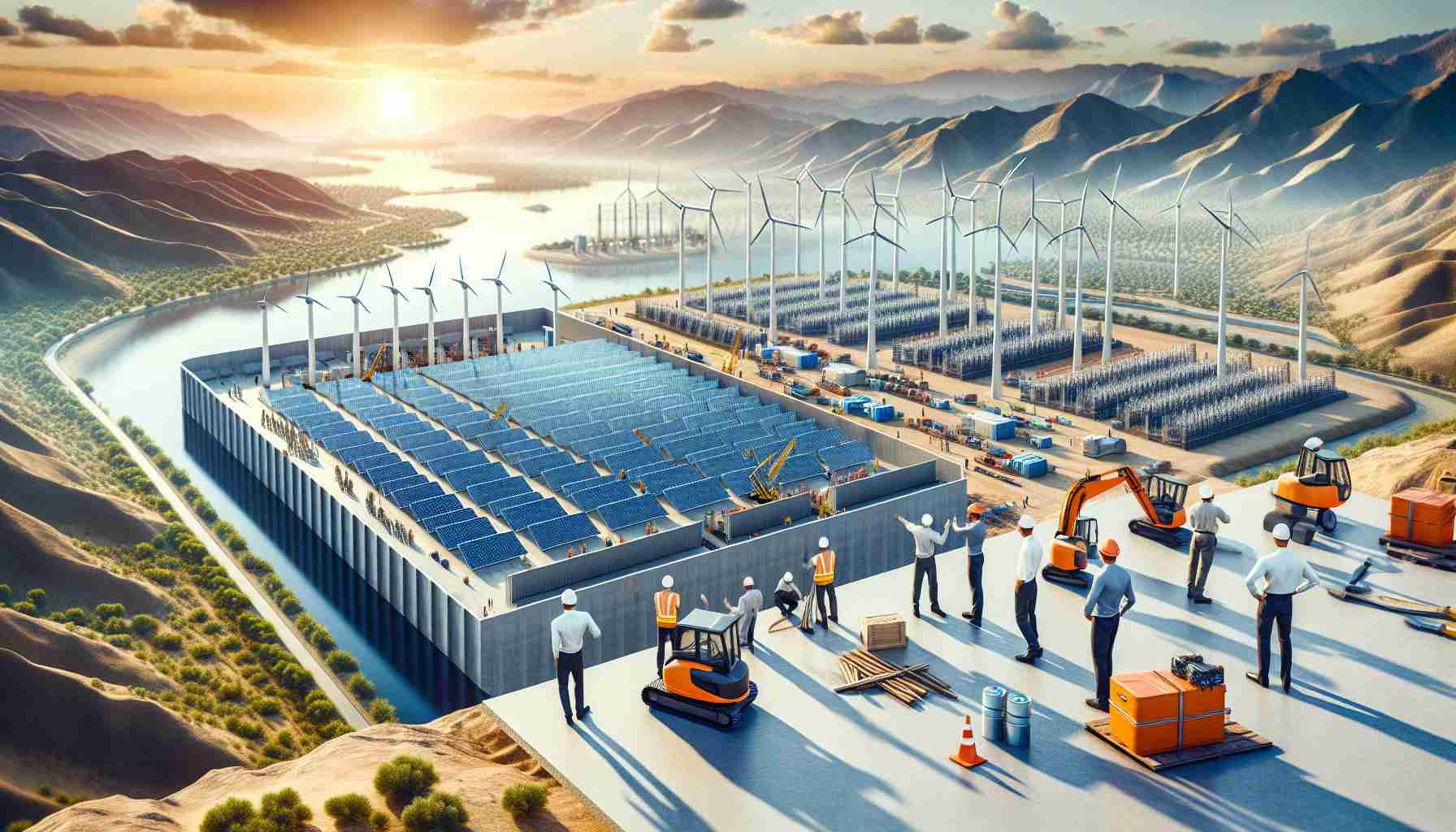
A New Era of Clean Energy in California
On December 11, 2024, Strata Clean Energy proudly unveiled its latest energy storage facility in Rialto, California. With a capacity of 70 MW, the Inland Empire Energy Storage project is poised to deliver a remarkable 280 MWh of electricity to bolster Pacific Gas & Electric (PG&E) during peak demand.
This state-of-the-art facility is strategically designed to store surplus energy generated during low-demand times, ensuring a reliable supply during high-demand periods. It plays a vital role in California’s ambition to transition away from fossil fuels and toward renewable energy sources. As one of nine battery storage initiatives announced by PG&E in 2022, it reflects a growing commitment to sustainable energy solutions.
The need for energy storage has never been greater. Rising consumption driven by data centers, electric vehicles, and overall electrification has intensified pressure on the energy grid. The Inland Empire project successfully began commercial operations on October 9, 2024, following successful interconnections facilitated by PG&E and Southern California Edison.
Economically, this initiative promises significant benefits for the local community, contributing approximately $13.3 million in property taxes and over $50 million in revenue from construction activities. The project additionally created 92 construction jobs, underpinning its positive economic impact in the region.
With over 170 solar and energy storage projects already active, Strata’s work signals a bright future in the quest for cleaner energy solutions.
California’s Green Transition: A Transformative Energy Storage Solution
Overview of the Inland Empire Energy Storage Project
As California pushes towards its goal of a sustainable future, energy storage initiatives like the newly launched Inland Empire Energy Storage project are crucial. Strata Clean Energy’s facility in Rialto, which boasts a capacity of 70 MW and can deliver 280 MWh of energy, is a prime example of how innovative technology can catalyze the state’s green transformation.
How Energy Storage Works
Energy storage systems are designed to capture and hold surplus energy generated during periods of low demand, releasing it during peak usage times. This balancing act not only helps stabilize the grid but also maximizes the use of renewable resources like solar and wind energy. The Inland Empire project specifically supports Pacific Gas & Electric (PG&E), one of California’s largest utility companies, ensuring that electricity is available when it’s needed most.
Benefits of the Project
1. Economic Impact: The Inland Empire Energy Storage project promises substantial economic advantages, including an estimated $13.3 million in property taxes and more than $50 million in revenue generated from its construction phase. Furthermore, it created about 92 construction jobs, contributing to local employment and economic growth.
2. Environmental Advantages: The facility plays a pivotal role in California’s strategy to reduce dependence on fossil fuels, aligning with statewide goals of lowering greenhouse gas emissions. By enabling better integration of renewable energy sources, it enhances sustainability.
Pros and Cons
Pros
– Supports renewable energy integration.
– Reduces pressure on the energy grid during peak times.
– Offers significant economic benefits to the community.
Cons
– High initial capital investment for construction and technology.
– Dependency on existing infrastructure for carrying electricity to end-users.
Compatibility and Market Analysis
The Inland Empire facility is compatible with various renewable energy projects, including solar farms and wind turbines. As part of a larger ecosystem of over 170 solar and energy storage initiatives by Strata Clean Energy, it contributes to California’s competitive landscape for renewable energy investments. As more businesses and individuals transition to electric vehicles and renewable resources, the demand for such storage solutions is projected to rise significantly.
Trends and Innovations
Recent trends indicate an increasing investment in battery storage technologies, driven by the need for grid stability and renewable energy integration. Innovations in battery technologies are improving energy efficiency and reducing costs, making projects like the Inland Empire Energy Storage more viable.
Conclusion
The unveiling of the Inland Empire Energy Storage project marks a significant milestone in California’s clean energy journey. As more energy storage facilities come online, they will not only provide immediate benefits but also offer a model for other regions aiming to enhance sustainability and energy security.
For more information on California’s initiatives in sustainable energy, visit California Energy Commission.



